- YouTube
- TikTok
Oakland University alumni are a tight-knit community. But none more so than the Black Alumni Chapter, who are proof that you find more than an education at a university. You find a family.
“I don’t know if there is a stronger fellowship of people anywhere in the country,” says Robert Thornton, CAS ’77. “At its core, the Oakland University Black Alumni Association is both a network of graduates and a fellowship of friends that has evolved into this long-term partnership of people of like ideals and principles .” In short, The Black Alumni Chapter was created to provide a vehicle for personal and professional networking and to assist undergraduate students to matriculate through the university and pursue successful careers.
The chapter works equally with black alumni and students, ensuring that both receive adequate resources and support to be successful. The board of the chapter has 12 feverishly passionate and dedicated alumni. Their diverse spectrum of experiences, degrees, backgrounds, ages and professions make them a reputable force for creating change on campus and the broader community.
“Everyone [on this board] gives 100 plus percent not only financially, but with their time,” says Tia Cobb, secretary, SEHS ’89. “And that allows us – as a group, as a family, as mentors with one another and mentors to students – to make sure that anyone coming up behind us is successful.”
“The needs of students are numerous. And the needs of black students on a majority white campus are unique,” Thornton explains. “It’s incumbent upon people like us to make sure the university understands what black students need and helps to meet those needs in ways that support student success.”
In 1974, on the tail-end of the civil rights movement, Manuel Pierson, dean of student services, empowered the university’s students to develop an alumni chapter to ensure black students were properly supported while offering them a platform to be heard by OU leadership.
“Back then, college campuses were not always responsive to the needs of black students,” Thornton says, “So, we created this organization to help the university become more sensitive to the needs of all of its students with intention in culturally competent ways.”
“It was also important to make sure that we had ways of staying connected once we left the university,” adds Eleanor Reynolds, SEHS ’74. “We had such strong bonds because of all the things we went through. We wanted to make sure there was a way to keep those connections going.”
“That’s the thing that’s unique about the Black Alumni Chapter, is that we have friendships that have lasted for more than 50 years,” Thornton continues.
“That’s where the ‘Just Friends’ event came from,” explains Sharman Davenport, Ph.D., chair, CAS ‘80.
“Just Friends” is a companion fellowship program supported by the chapter, hosting yearly events for the past four decades. The program is a testament to the Black Alumni Chapter’s dedication to inclusivity, as they bring together not only black alumni and students, but their friends, family, and those who attended OU but never graduated. The program strengthens the bonds between all those affiliated with Oakland in one way or another.
“One of our alumni, Gary Moss, introduced me to the alumni chapter through Just Friends,” says Angela Banister, treasurer, SBA ‘95. “They had picnics and Christmas Parties, and I was hooked. It was so welcoming, it felt like one big family reunion.”
“When we do the Just Friends parties, we have at times raised money to give scholarships to students that are struggling,” Cobb describes. “We want to make sure they don’t have to struggle like we had. We want to make sure they are successful and complete their graduation process.”
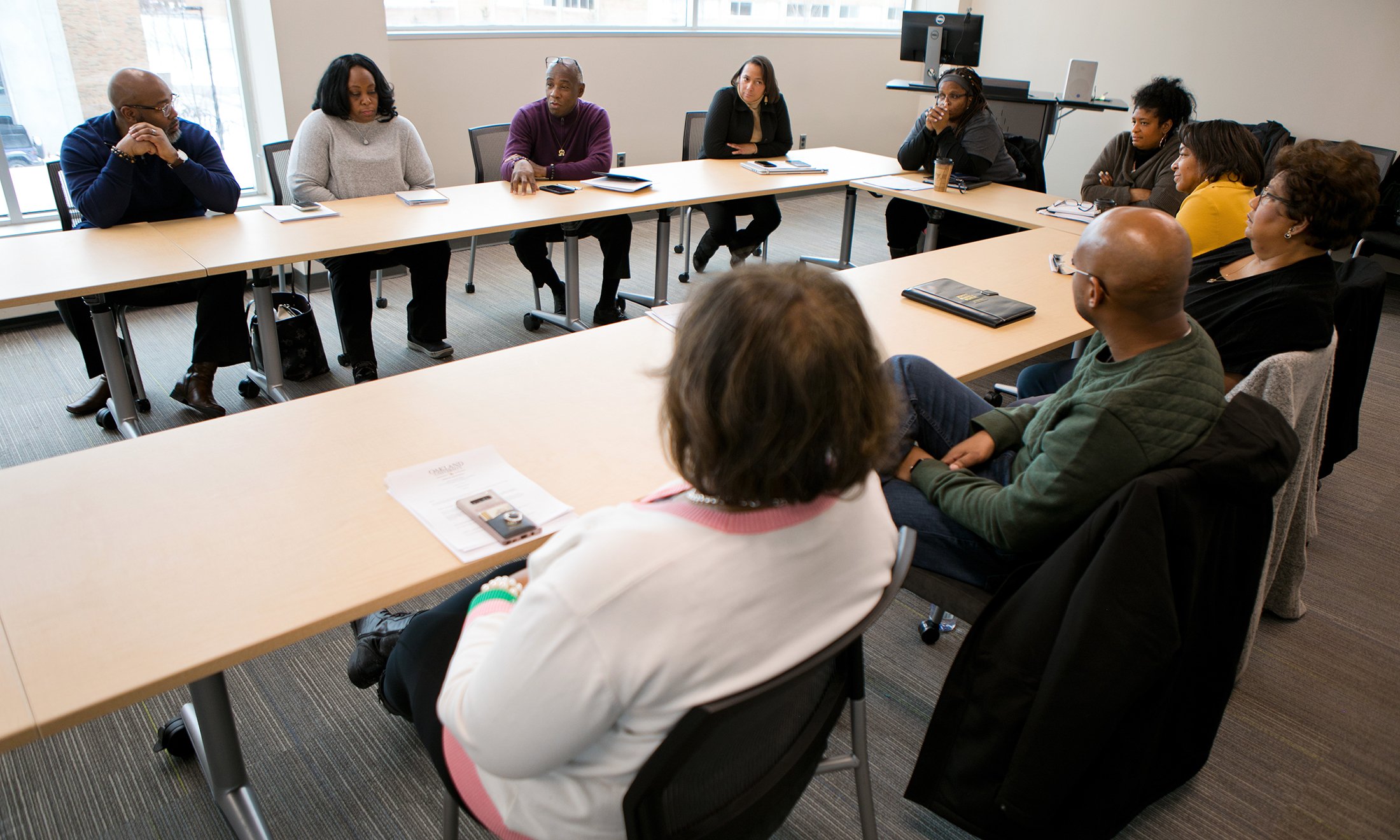
The Black Alumni Chapter board members (left to right): Carl Jackson, CAS ‘93; April Jackson, SEHS ‘93; Robert Thornton, CAS ‘77; Tia Cobb, secretary, SEHS ‘89; Angela Banister, Treasurer, SBA ‘95; Robynn Gamble, CAS ‘87; Sharman Davenport, Chair, CAS ‘80; Eleanor Reynolds, SEHS ‘74; Razzaq McConner, SBA ‘01; Stephanie Lee, CAS ’93, SEHS ’17 and ’19.
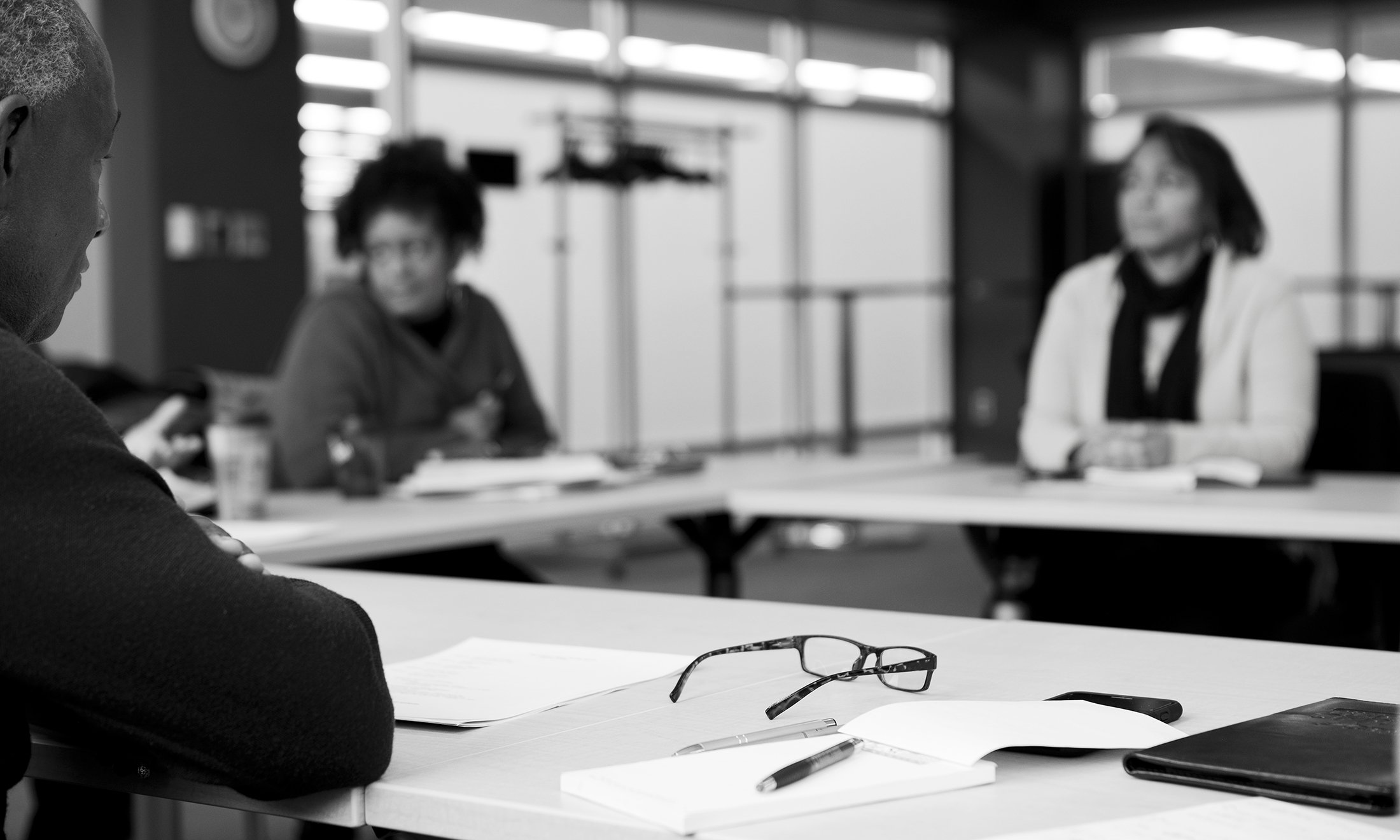
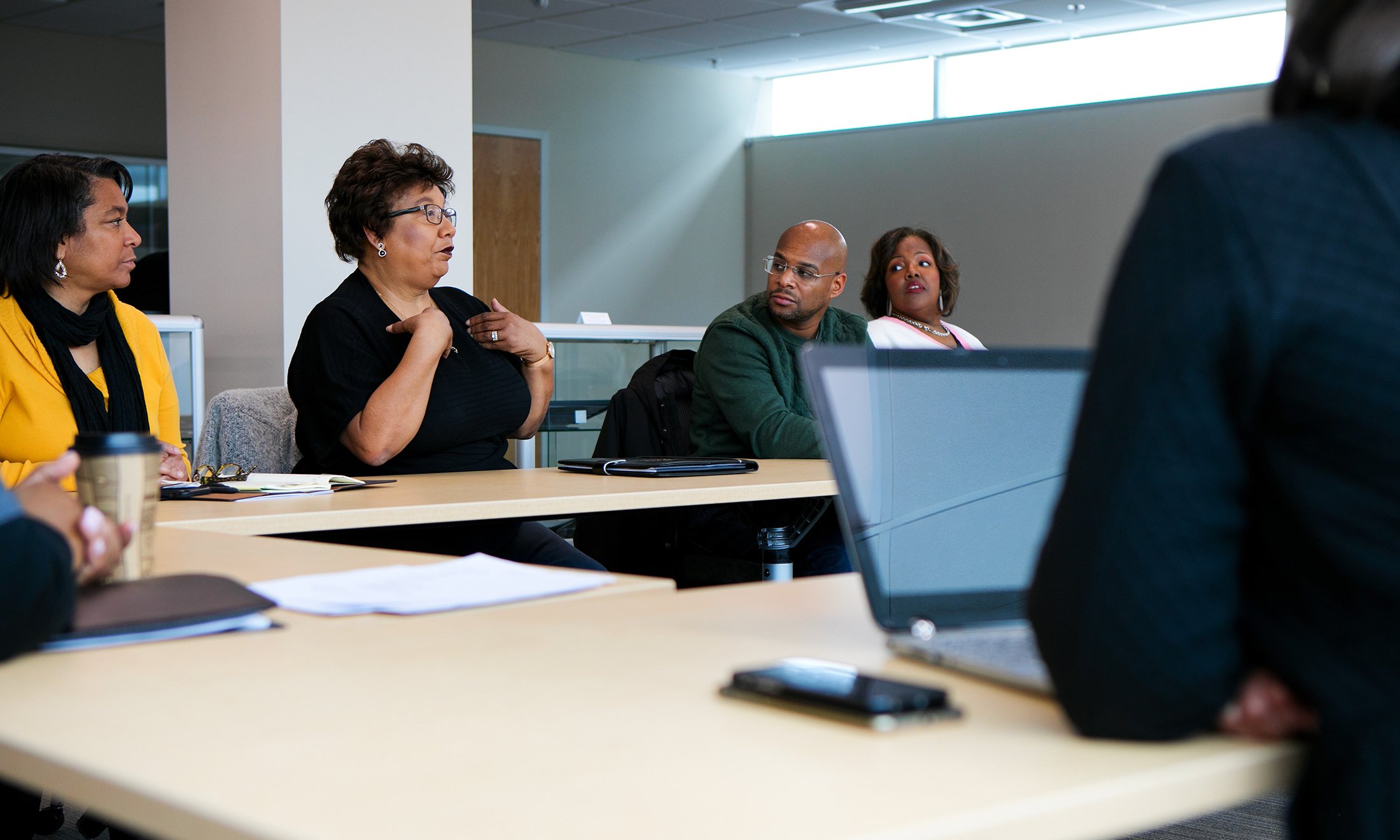
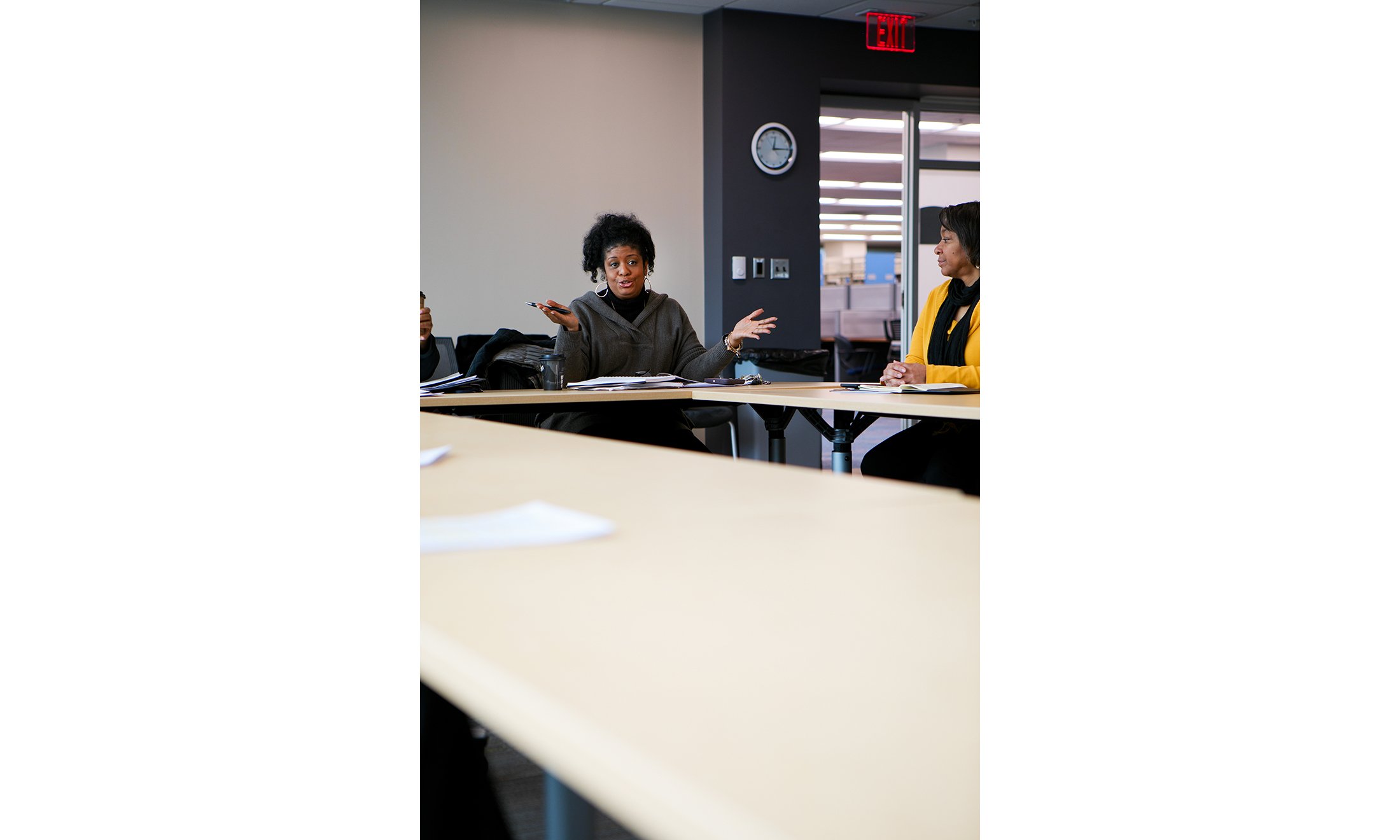
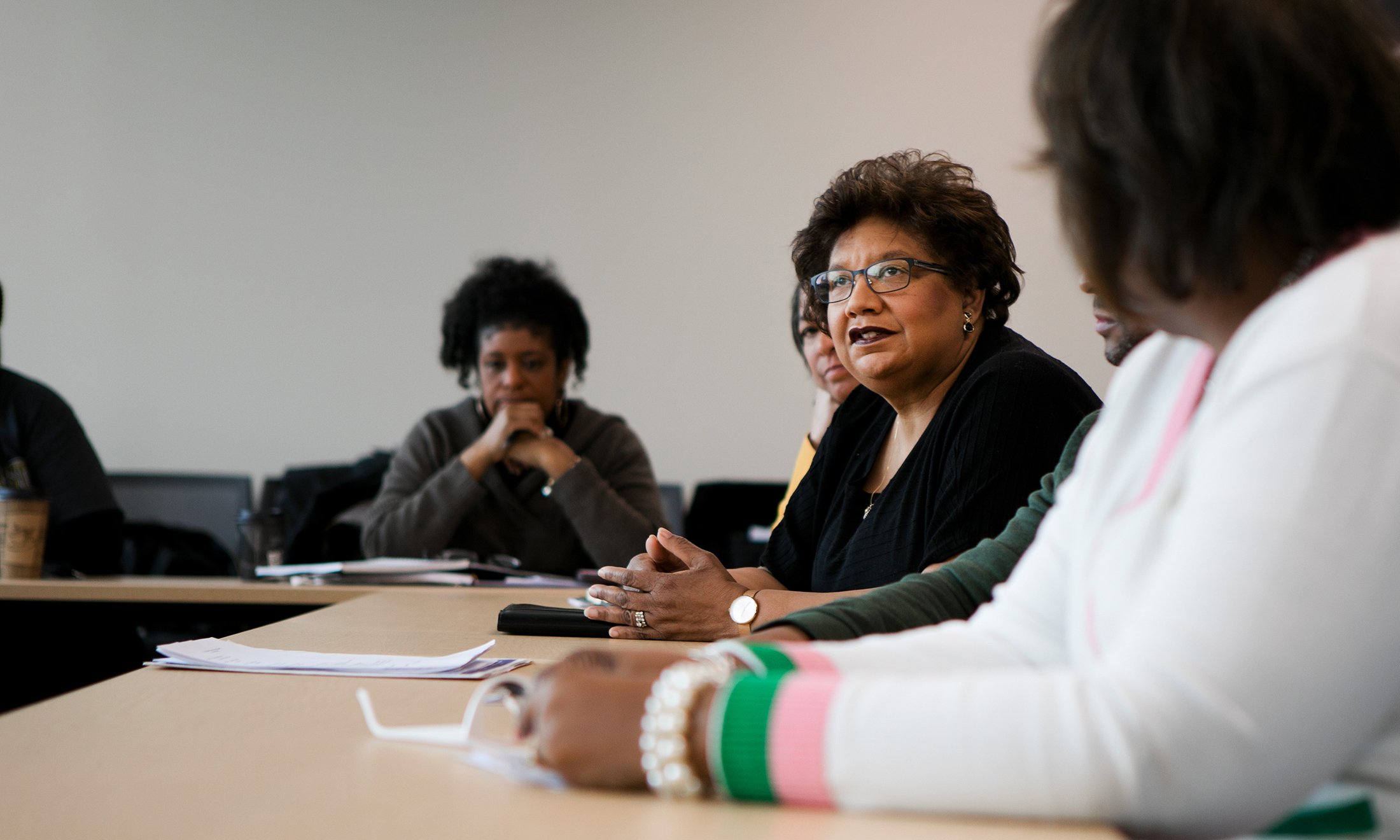
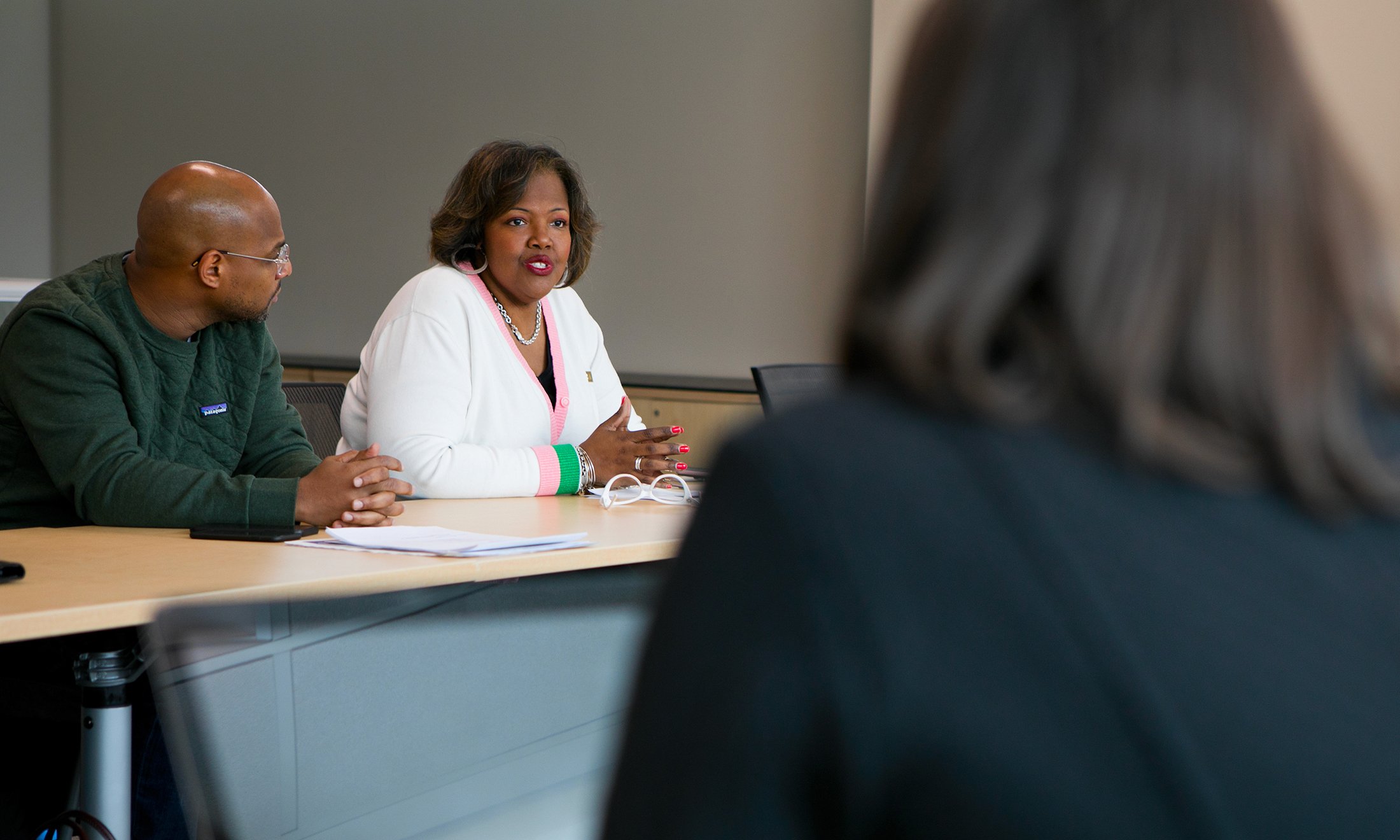
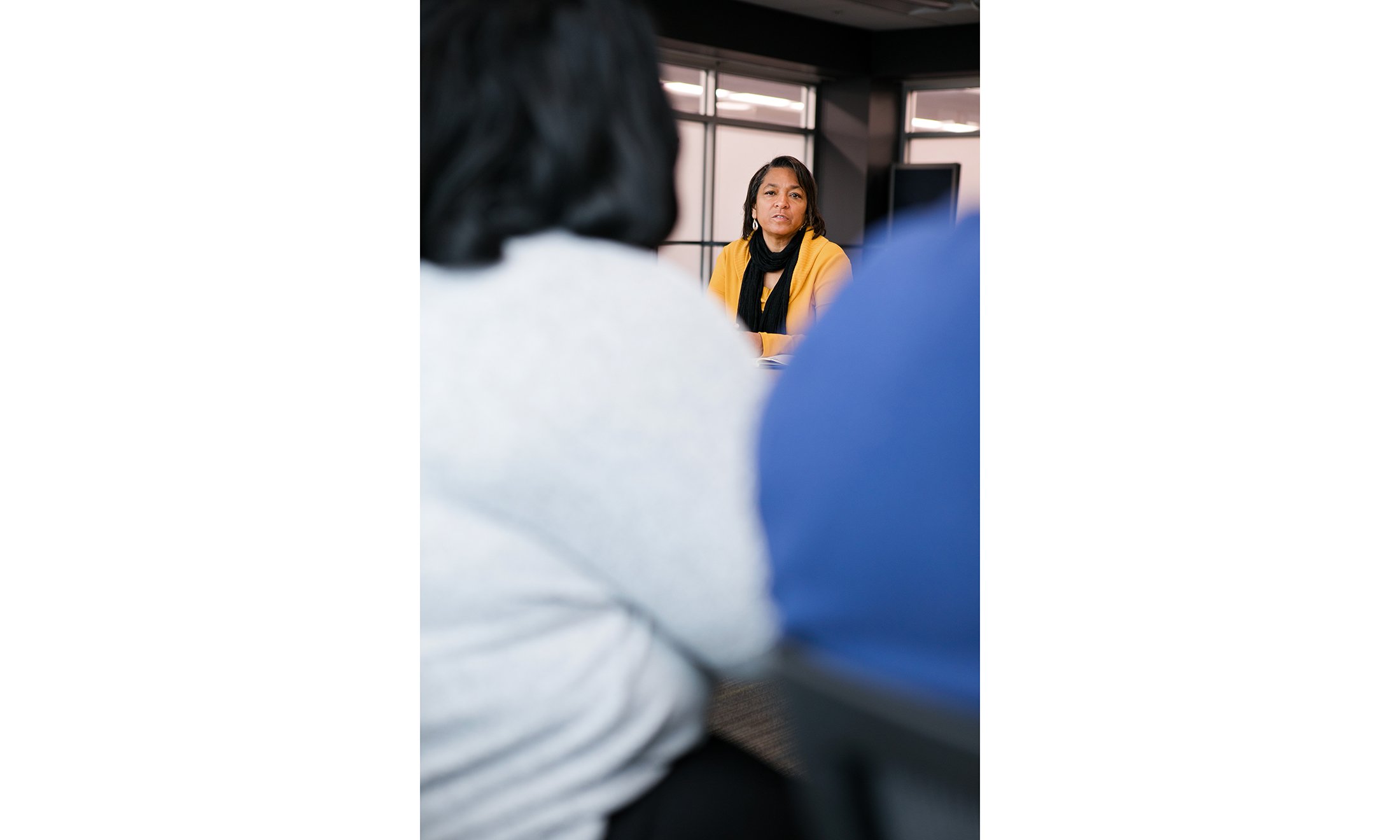
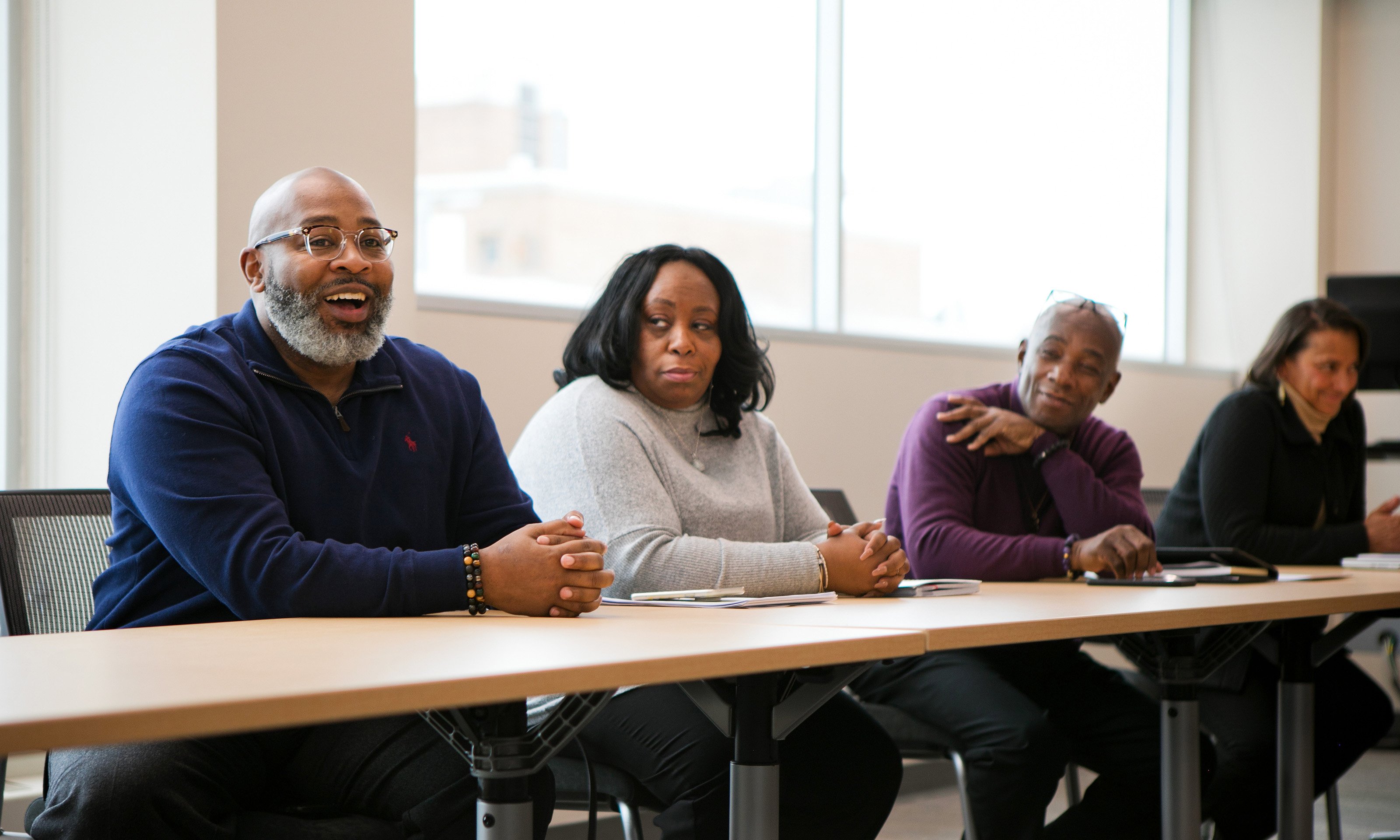
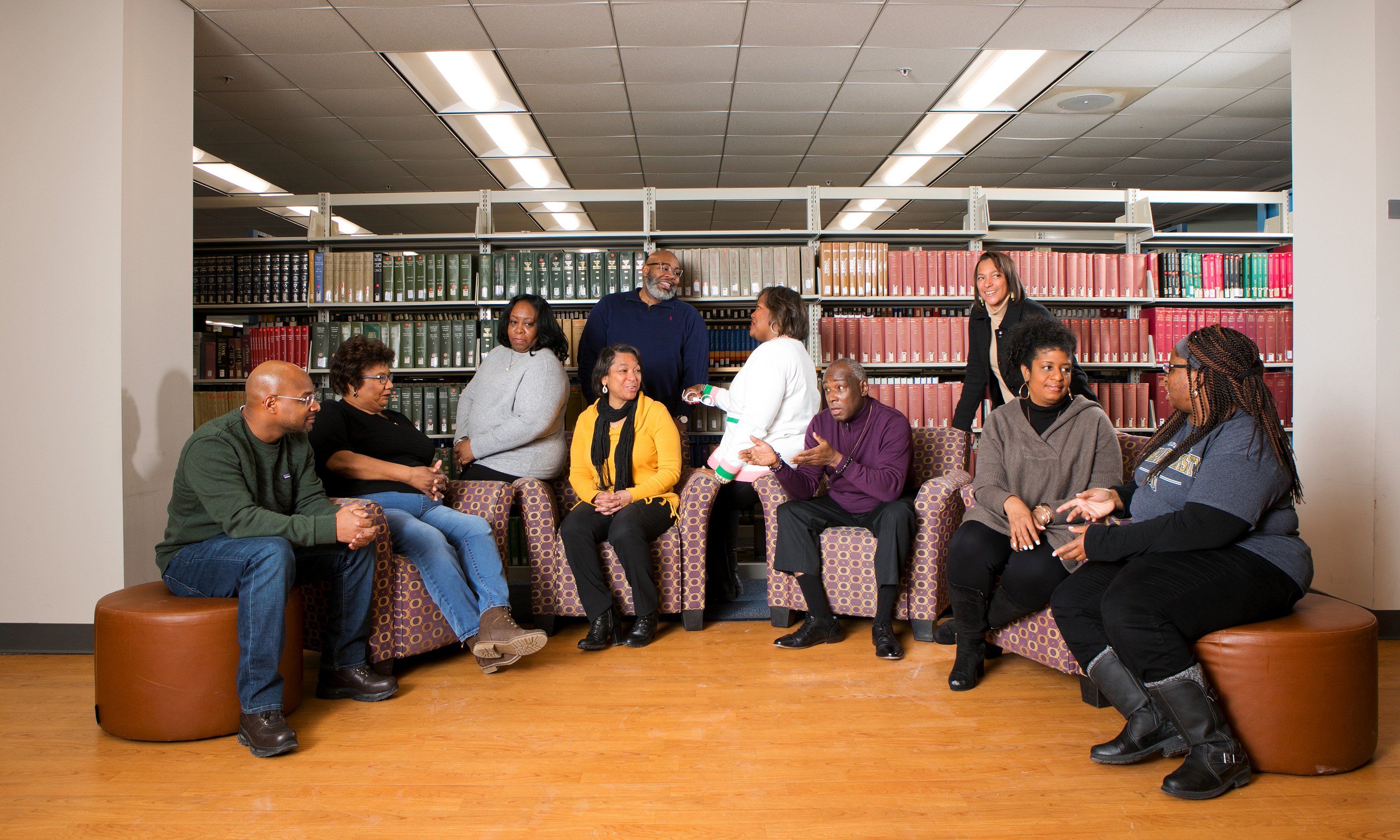
The chapter has seen enormous success over the past several years in establishing funds to support scholarships by creating the Manuel H. Pierson Endowment, the Student Retention Fund. The chapter also works closely with the University’s Alumni Ambassador Program, helping students navigate the educational system, and being role models and mentors, bringing alumni back to campus. The board’s ability to thrive in leading this charge is born out of their individual and collective experiences as OU students and their desire to give back.
“I think most of the people [on the board] were first-generation college students,” says Carl Jackson, CAS ’93, “so, in a lot of cases, there were no parental advisers on how to navigate a college campus, how to speak to professors, or how to even study properly. A lot of the isolation came from not just the academic front, but the social front and financial front, too.”
“Throughout the years, there’s been ebbs and flows with how the university is,” adds Reynolds. “The Black Alumni Association has really been a thread through all those ups and downs. We have been that thread that’s continued to connect over generations.”
“The disconnect to the University was not a disconnect to each other,” Dr. Davenport explains. “We’ve always had the connection to each other, but there are alumni who are not interested in coming back because they have disconnected from the university, and that’s the bridge that we’re trying to gap.”
For a long time, the chapter held events and meetings off-campus, but bringing things back to campus was an intentional choice for the board to better reconnect to the University. This allows the chapter to work more directly with the University’s black students, have higher visibility on campus, and provides opportunities for alumni that had once felt alienated to come back, join their peers and be a part of the progress.
“We want to heal the relationships and help the alumni embrace the university,” says Dr. Davenport. “And at the same time, continue to help and reach out to black students as they complete their graduation requirements.”
“Being here and letting the students see that we support them is important,” explains April Jackson, SEHS ’93, “We’re trying to be visible and give back time.”
“When they leave Oakland, they’re leaving a family,” Stephanie Lee, Ph.D., CAS ’93, says, “And we want to make sure they feel like they can come back.”
“And that they have a support system when they are here,” adds Razzaq McConner, SBA ’01, “Being a part of the board, seeing the energy, commitment and passion that this group has to both the university’s students and alumni … it’s contagious.”
“For me, the biggest movement for us is being back on campus, Dr. Davenport continues. “Feeling the support of the university as we work toward strengthening the black alumni chapter and expanding our participation as part of the university community.”
“And holding the university accountable for making sure that transitions happen,” Dr. Lee chimes in.
“And that they want us here,” Dr. Davenport agrees. “That feels good.”
While the board has seen an immense increase in their alumni engagement, there are still pockets of people they are hoping to reach, such as graduate students and employees at OU. “We need to get them more involved,” explains Dr. Lee.
“We encourage students and alumni to seek assistance and support if they need it,” says Gamble. “We are here to provide that support.”
“We are here,” echoes Dr. Davenport, as the entire board nods in companionable agreement.
“Each of us came in through different paths,” Banister says, “but we shared our experiences with one another, and that’s how a lot of us got to where we are today.”
Find your connection with the Black Alumni Chapter through Oakland University Alumni.


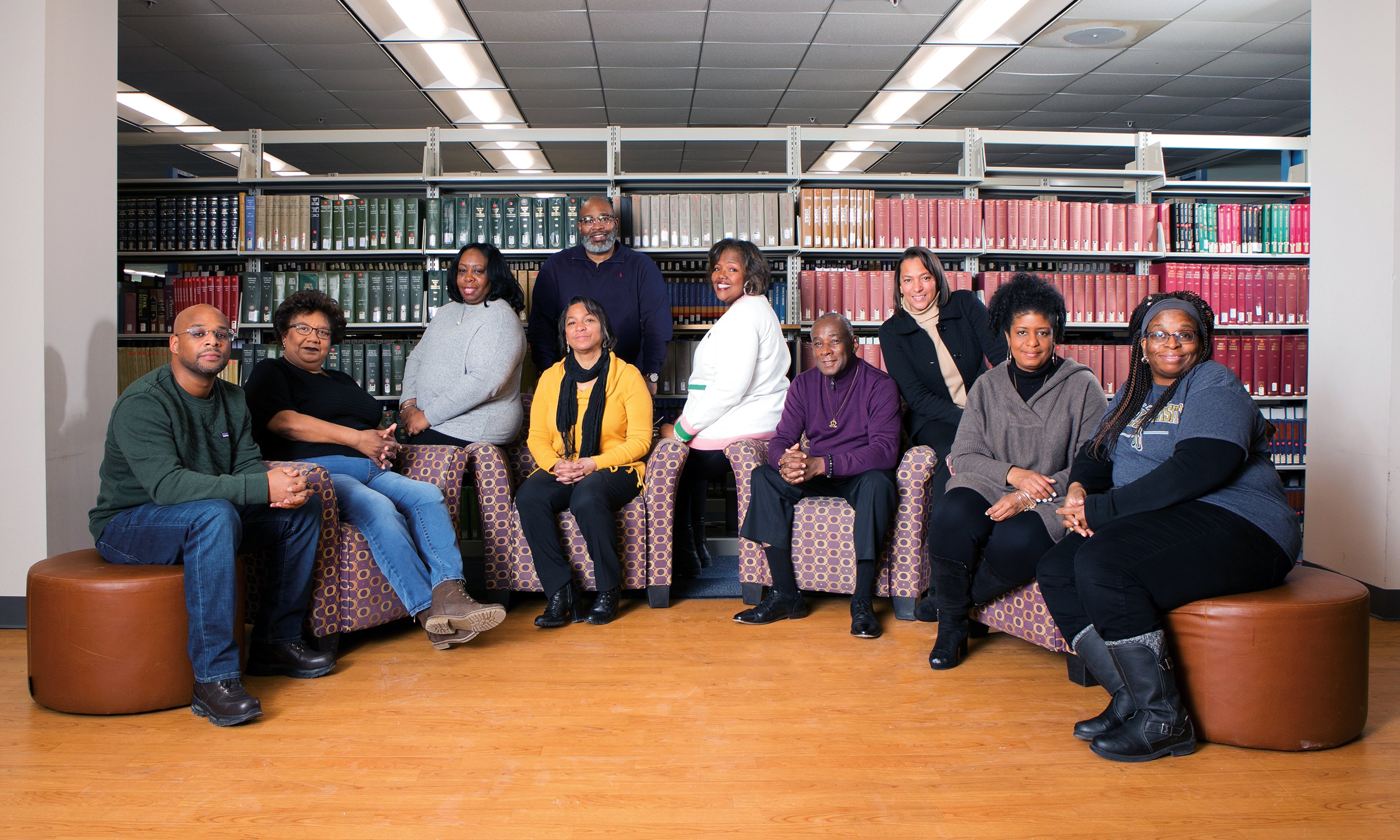
 June 22, 2020
June 22, 2020 By Kelli M. Titus
By Kelli M. Titus
